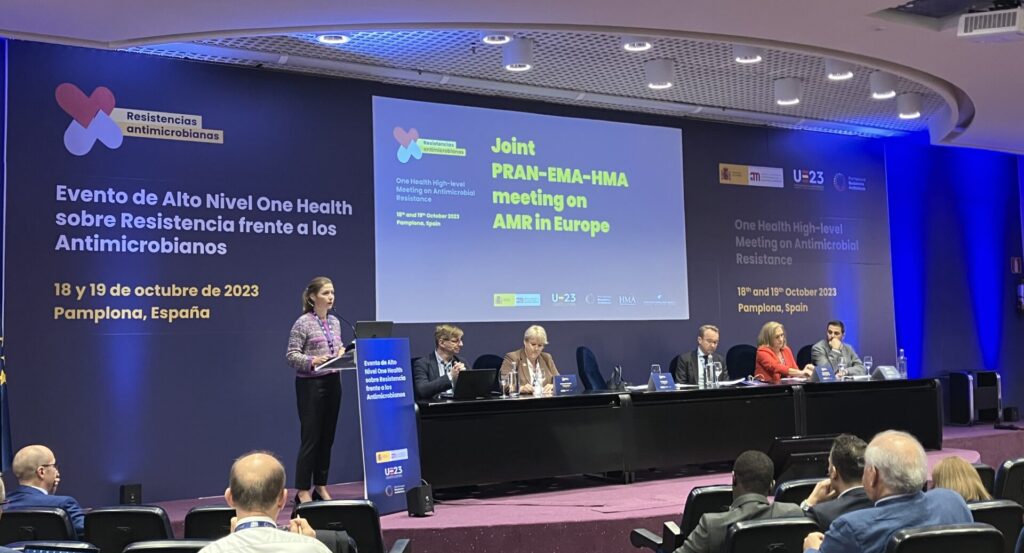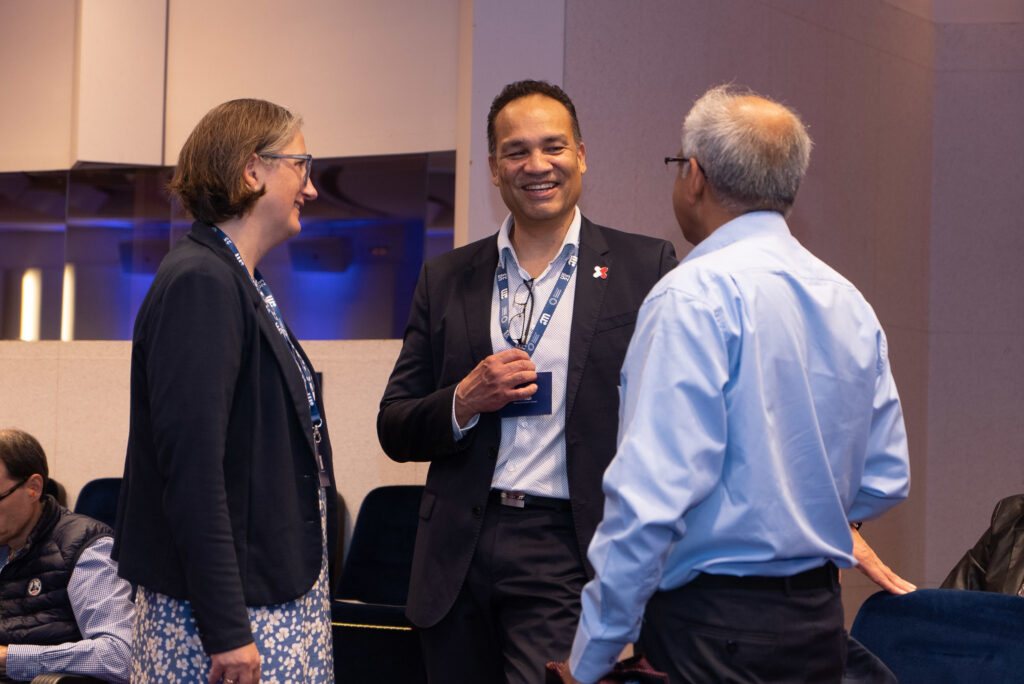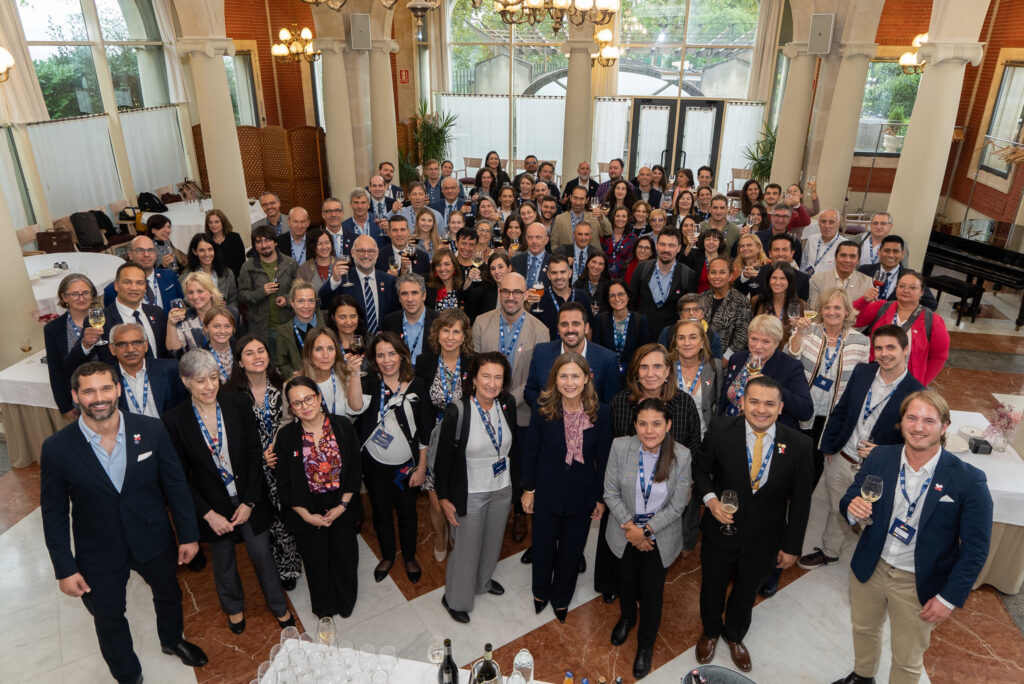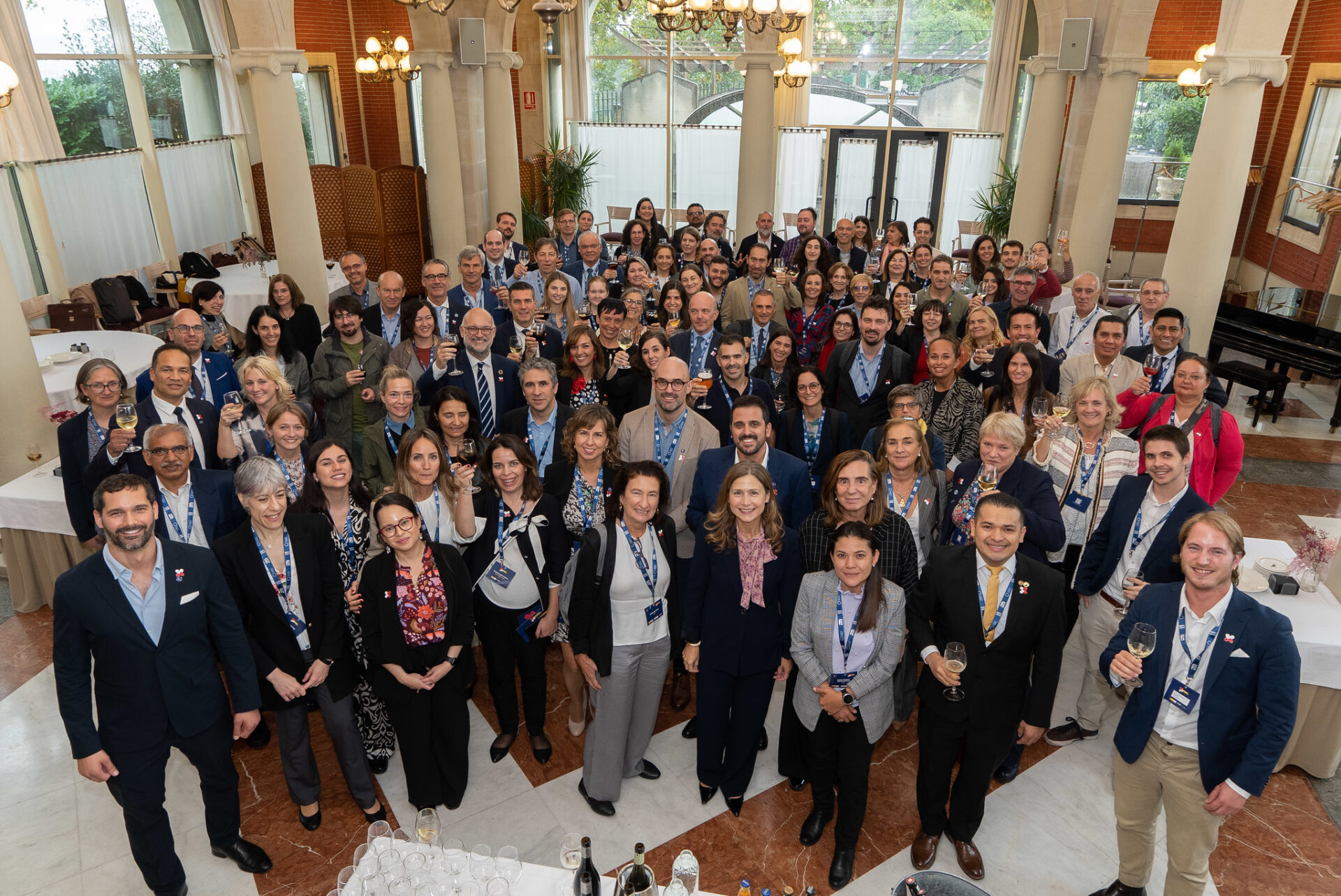On October 18th and 19th, ICARS Executive Director, Dr Sujith J Chandy, and Director of Operations, Helle Engslund Krarup, participated in the EU council presidency’s One Health High-level Meeting on AMR in Pamplona, Spain. The meeting provided a valuable opportunity for ICARS to engage with multiple governmental and international stakeholders across Europe, and advocate for improved awareness trough optimal communications strategies.
Optimisation, prevention, and surveillance on the agenda
The primary topics addressed during the meeting included the optimisation of antimicrobial use (AMU), infection prevention to reduce the need for antimicrobials, and the surveillance of antimicrobial resistance and use in both human and animal health, along with its environmental transmission.

The first day was devoted to the PRAN-EMA-HMA meeting on AMR. Thomas Heberer from the German Federal Office of Consumer Protection and Food Safety (BVL) and Barbara Freischem from EMA presented the European Medicines Agency’s Network Strategy (EMANS) towards 2025. The strategy that was presented features AMR-specific objectives, reinforcing the need to continue providing high quality information on antimicrobial consumption (AMC) and surveillance data on AMR in human and animal health in Europe. Additionally, it fosters a dialogue on the development of new antimicrobials and alternatives to conventional options.
Stressing the need to change the AMR narrative
In the afternoon, a panel debate between Dr Danilo Lo-Fo-Wong (WHO), Dr Svenja Sander (BVL), Camelia Enachioiu (EMA), and María Santacreu (PRAN) discussed communication strategies for improving public health awareness of AMR, focusing on behavioural change and the challenge of language barriers. Taking part in the debate, ICARS stressed the urgency of reshaping the narrative surrounding AMR by hearing voices from Low- and Middle-Income Countries (LMICs) and stakeholders working in various One Health sectors on the ground. In relation to building this narrative, ICARS also presented its comprehensive approach, which offers insights into various contexts and practical frameworks of interventions. Simultaneously, this approach generates buy-ins from partner and project countries through collaboration with governments, research institutions and other stakeholders, thus gaining much needed traction to increase the potential for sustainability.

On the second day, the main high-level meeting on AMR took place, which was inaugurated by Fernando Domínguez, Health Counsellor of the region of Navarra and Dr José Miñones, the Spanish Minister of Health. The high-level discussions comprised of three roundtables. The first roundtable introduced the Regulatory Agencies Global Network against AMR (RAGNA). Adopting a one health approach, RAGNA aims to strengthen regulatory authorities and regulations, identify concrete actions, and exchange good practices. The second roundtable focused on integrated surveillance systems, highlighting the need for Europe to enhance its monitoring of AMR in the environmental sector. Lastly, the third roundtable revolved around intersectoral coordination across regions to improve synergies in facing AMR. This underscored the essential need for coordinated efforts, spanning from political aspects to technical requirements in various countries.

The two-day high-level meeting provided an essential platform for discussing research insights crucial to shaping future AMR action plans, as well as the importance of communication and raising awareness on AMR mitigation. ICARS was honoured to contribute to these important discussions and stress the urgent need for a new narrative on AMR that addresses the realities LMICs are facing.
Read more about ICARS Strategy here.

